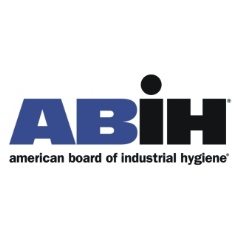Thermal Risks for Workers Exposed to Freezing Temperatures Need to be Addressed
The American Board of Industrial Hygiene® (ABIH®) reminds workers and industry of the health and safety concerns inherent with working in cold environments and mitigating exposure risks.
While there is not a specific OSHA standard for working in cold environments, under the OSH Act of 1970, all employers have a duty to protect workers from recognized hazards.
While some workers involved with industrial refrigeration and freezing temperatures are faced with working in cold conditions all year long, during the winter months, frigid temperatures impact millions of workers in many professions. Any of these employees may be at risk of a condition known as cold stress.
According to the Occupational Safety and Health Administration (OSHA), “What constitutes cold stress and its effects can vary across different areas of the country. In regions that are not used to winter weather, near freezing temperatures are considered factors for ‘cold stress.’ Increased wind speed also causes heat to leave the body more rapidly (wind chill effect). Wetness or dampness, even from body sweat, also facilitates heat loss from the body. Cold stress occurs by driving down the skin temperature and eventually the internal body temperature. When the body is unable to warm itself, serious cold-related illnesses and injuries may occur, and permanent tissue damage and death may result.”
“While there is not a specific OSHA standard for working in cold environments, under the OSH Act of 1970, all employers have a duty to protect workers from recognized hazards,” said Dirk Yamamoto, PhD, CIH® and Chair of ABIH®. “This includes cold stress hazards that are causing or likely to cause death or serious physical harm in the workplace as stated by OSHA. Cold stress illnesses and injuries can range from hypothermia and frostbite to trench foot when moisture enters the equation.”
One group of professionals that are experts at identifying and mitigating thermal stressors are known as Certified Industrial Hygienists (CIHs). These dedicated individuals are uniquely qualified to recognize and prevent working conditions that could needlessly lead to illnesses and injuries involving many types of workplace stressors. CIHs are knowledgeable and skilled with engineering controls and ventilation, health risk analysis and hazard communication, and work environments and industrial processes. These and other core competencies of the CIH® program are instrumental in helping to ensure a safe work environment.
To learn more about the American Board of Industrial Hygiene®, the Certified Industrial Hygienist® credential, or to locate a CIH® to perform industrial hygiene services, please visit www.ABIH.org or email abih@ABIH.org . For information about the Qualified Environmental Practitioner credential or Environmental Professional In-Training designation, visit www.IPEP.org or email ipep@IPEP.org . Please call (517) 321-2638 for questions about ABIH® or its credentials and designations.
About the American Board of Industrial Hygiene ®
Since 1960, ABIH®, a not-for-profit corporation, has been the world’s largest organization for certifying professionals in the practice of industrial hygiene. ABIH® is the premier credentialing body responsible for ensuring high-quality certification including education, experience, examination, certification maintenance, and ethics enforcement. ABIH® also administers the Qualified Environmental Professional (QEP®) credential for established environmental practitioners and the Environmental Professional In-Training (EPI) designation for early-career practitioners. Currently, more than 7,600 people around the world hold the CIH® credential, QEP® credential, or EPI designation.
( Press Release Image: https://photos.webwire.com/prmedia/12710/234120/234120-1.jpg )
WebWireID234120
- Contact Information
- Paul Cochrane
- President
- Cochrane & Associates, LLC
- Contact via E-mail
This news content may be integrated into any legitimate news gathering and publishing effort. Linking is permitted.
News Release Distribution and Press Release Distribution Services Provided by WebWire.
